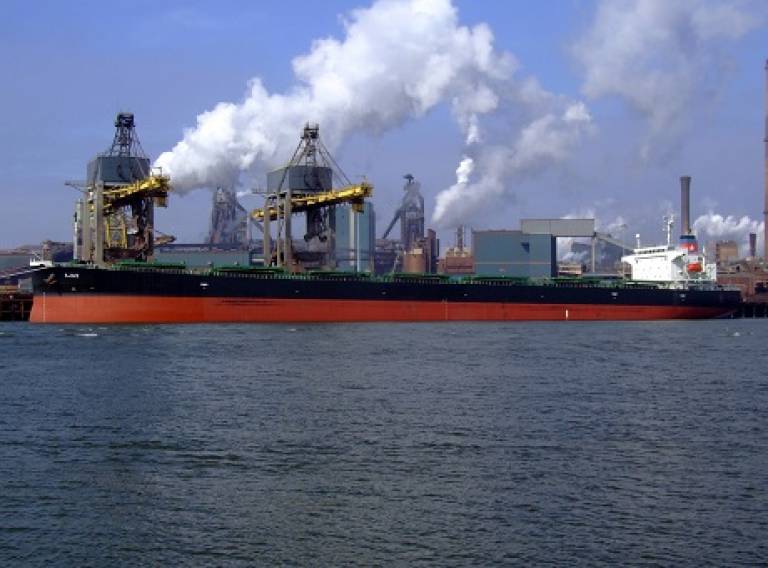UCL-Energy at the UN's 70th Marine Environment Protection Committee
11 November 2016

In October the International Maritime Organization (IMO) met for the 70th session of the Marine Environment Protection Committee (MEPC). On the first day of the committee meeting Dr Tristan Smith and Carlo Raucci along with the lead authors presented the findings of the IMO fuel availability study as a side event presentation. The presentation was followed by another study using the same terms of reference but coming to a contrasting conclusion.
UCL-Energy participants and colleagues from UMAS closely followed two key agenda items, review of the implementation date for a sulphur cap and the reduction of GHG emissions from ships. On the penultimate day of the committee meeting saw the majority of the plenary session house supporting the 2020 implementation for 0.5% sulphur cap despite divided opinions on the implementation date.
This landmark decision, despite the opposition and a divided house, was perhaps the result of mounting public pressure on governments to deliver because of the local air quality impacts of SOx emissions.
One study released prior to MEPC by a group of leading researchers from the United States and Finland found that 2020 implementation of a global low-sulphur fuel cap for shipping would prevent some 200,000 premature deaths due to less toxic fumes, mainly in coastal communities in the developing world.
This includes 134,650 avoided premature deaths in Asia, 32,100 in Africa and 20,800 in Latin America. The sulphur limit for marine heavy fuel oil is 3,500 times higher than the limit for diesel used in Europe’s cars and trucks, making the shipping industry by far the world's biggest emitter of SO2. A handful of the largest ships emit as much sulphur as the global fleet of cars.
All together 14 papers were submitted to the committee on this subject, and all, with the exception of two papers, were calling for shipping to consider its fair share of emissions.
For a more in-depth look at the IMO MEPC and the studies that may have influenced committee decisions read UCL-Energy blog: The highs and lows at the United Nations International Maritime Organisation’s 70th Marine Environment Protection Committee
Image credit: CC0 Public Domain Pixabay.com WikimediaImages
 Close
Close

